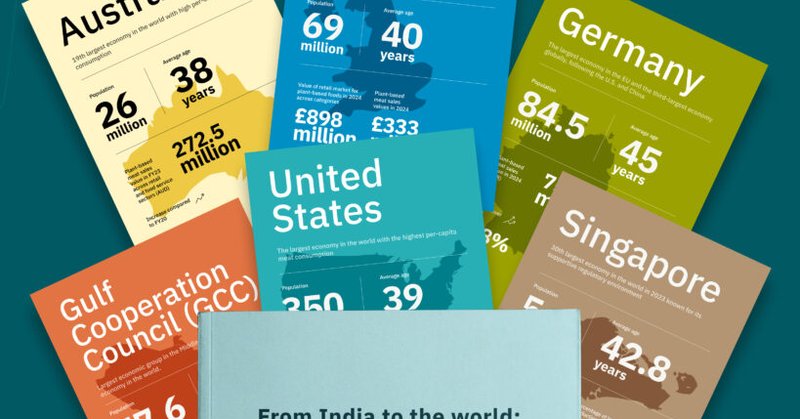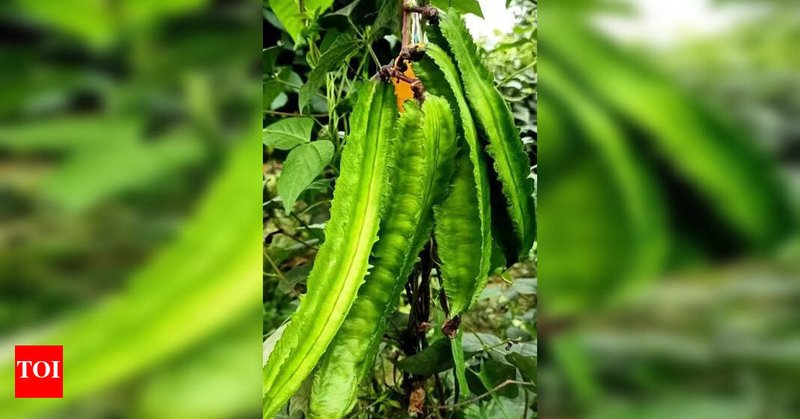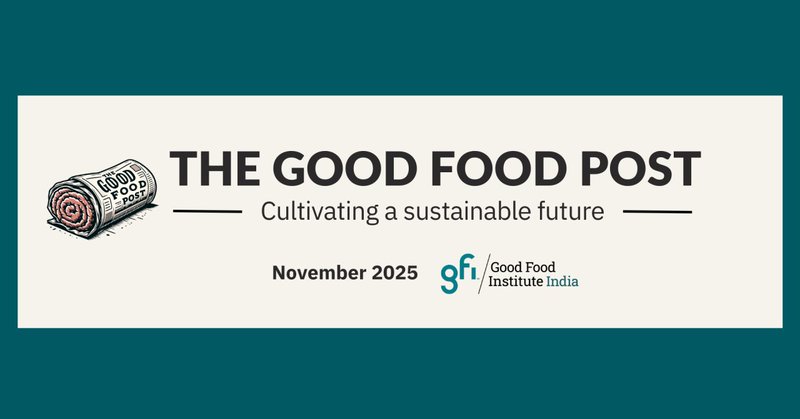
The Good Food Institute India
@GoodFoodIndia
Followers
1K
Following
400
Media
1K
Statuses
3K
Building the secure, sustainable, and just future of food, in the world's largest democracy.
Mumbai, India
Joined February 2019
The session will cover: 🚀 The rapid growth of biomass & precision fermentation globally 📜 Key safety & regulatory questions for novel foods 🤝 Harmonised regulations to accelerate access to international markets and ongoing multilateral efforts by the FAO, WHO & CODEX
0
0
2
Coming up 💡| Chandana Tekkatte, along with other fermentation experts, will be speaking at Fermented Futures, a webinar by @SightandLife and @CIFF_in_India. 📅 December 3, 7:30 p.m. IST 🔗 Register here: https://t.co/vvGVdo9dn5
1
3
3
2️⃣ The UK is the second largest market for plant-based alternatives in Europe, valued at £898 million in 2024. Indian smart protein exporters already have a foot in the door with BVeg Foods’ first shipment of vegan beef chunks to the UK in 2023.
0
0
0
In the spotlight today are two prominent European markets: 1️⃣ With the plant-based segment valued at €1.7B in 2024, Germany remains Europe’s largest market. Private-label products account for 38.5% of sales volume & retailer-QSR engagement has strengthened category visibility.
1
0
0
Breaking into international markets requires clarity on regulations, consumer behaviour & category dynamics, and formats that move off shelves. Our new report designed specifically for Indian smart protein exporters breaks this down market by market:
gfi-india.org
This report provides guidance for Indian companies looking to export plant-based alternatives by mapping opportunities in key international markets and
1
0
1
🫘Despite being widely known in Northeastern states, the winged bean remains underutilised in much of India. With a protein content of over 40 percent, this unique crop can serve as a viable source for plant-based #smartprotein applications. 🔗 https://t.co/Jmv0PufxXr
timesofindia.indiatimes.com
Lucknow: ‘Pankhia sem' or winged bean (Psophocarpus tetragonolobus L.) has four edges on the pod. Because all edges have leaflets resembling wings, it.
0
0
2
GFI India’s Arghadeep Saha joined the Winged Bean Germplasm Field Day, organised by @INbpgr and led by Senior Scientist Dr. Kuldeep Tripathi. The field day offered valuable insight into NBPGR’s work on germplasm exploration, preservation, and crop development.
1
1
0
Watch Sanjay Dave discuss how India currently approaches novel foods, what regulators consider when evaluating emerging products, and what global experiences and Codex deliberations can offer as ref points. 🎥 YouTube: https://t.co/EoHgu192jr 🎧 Spotify: https://t.co/NB7rB7l66e
0
0
0
As #COP30 kicks off, The Good Food Post dives into a pressing question: why hasn’t meat been a more significant part of the climate agenda? 🥩 Our Q4 edition examines why diversifying our protein supply is critical for climate action, especially for India:
linkedin.com
Welcome back to The Good Food Post! When we think about the main drivers of climate change and environmental pollution, images of plumes of smoke erupting from burning fossil fuels and tonnes of...
0
0
1
@DBTIndia @rajesh_gokhale 🌾During the session on Emerging Agricultural Technologies, Dr. Nachiket Kotwaliwale identified #alternativeprotein as a critical lever for sustainable food systems. (🧵4/4)
0
0
0
@DBTIndia @rajesh_gokhale 🧬Professor Masaru Tomita delivered a plenary address on synthetic protein materials, emphasising how precision fermentation can enable circular biomanufacturing and produce texturisers for plant-based meat applications. (🧵3/4)
1
0
0
💡A dedicated session led by the @DBTIndia and chaired by @rajesh_gokhale included highlights like Dr. Vijay Singh’s presentation on gas fermentation and Dr. Rekha Singhal’s insights on smart proteins, the circular economy, and net-negative biomanufacturing. (🧵2/4)
1
0
0
It was encouraging to see smart proteins featured prominently at the Emerging Science, Technology, and Innovation Conclave 2025 in New Delhi, where GFI India’s @IshwaryaPadma participated as a Young S&T Leader. (🧵1/4)
1
0
0
How can India create a regulatory environment that’s innovation-ready, risk-proof, and globally aligned? 🎙️Sanjay Dave, one of the foremost food safety experts, unpacks it all on episode 4 of The Smart Protein Pod, out now💥 https://t.co/EoHgu192jr | https://t.co/NB7rB7l66e
0
0
0
👀For a deeper dive into the findings, watch the webinar hosted by Elliot Swartz and Bert Frohlich:
0
0
1
💡@GoodFoodInst and BioPharm Designs have released a review on cell growth models for cultivated meat production, which examines how computational modelling can guide process optimisation, cost estimation, and bioprocess design. 🔗 https://t.co/NZdQn6Nqs9
1
0
2
OUT NOW 💥 | Our new report provides market and regulatory insights on the export opportunities for smart proteins in key international markets like Germany, the UK, the U.S., Australia, Singapore, and the Gulf Cooperation Council (GCC): https://t.co/unRzdSxOfs
0
1
3
💡 Among several voices from the ecosystem, the magazine features an interview with Sneha Singh on how India’s agricultural diversity, biomanufacturing expertise, and progressive policies are converging to position the country as a global smart protein powerhouse.
0
0
1
Calling it the future of food, the magazine identifies smart proteins as an emerging market, mapping its nutritional and environmental imperative and investment landscape, as well as the regulatory environment and policies shaping their path to market.
1
0
0
💥 The latest edition of @neosciencehub takes a deep dive into India’s growing smart protein landscape with a 10-page feature on the science and innovation in cultivated meat and precision fermentation.
neosciencehub.com
Lab grown meat - The plant-based meat is produced using ingredients such as wheat gluten, mushroom, beans, lentils, yuba, tofu, soybeans, and a variety of nuts.
1
1
0




